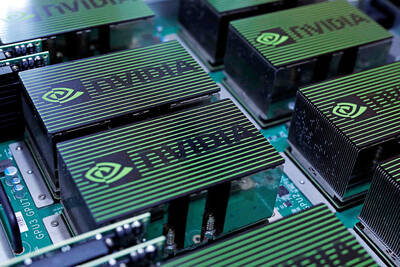Taser International Inc has changed how one of its stun gun models delivers its electric charge after some police officers said some combative suspects had been able to regain partial mobility while they were being stunned, the company said.
The change will make the X26 stun gun about 14 percent more powerful, The New York Times reported.
Scottsdale-based Taser, in statements issued Friday in response to the article, disputed that it was making the device more powerful. The previous version of the X26 delivered a steady two-second stream of electric pulses followed by a slower three-second stream; the change delivers the pulses at the higher rate for the full five seconds.
"This is not a product redesign. It is a software upgrade," the company said in a statement posted on its Web site. "A helpful analogy would be ... installing the latest service updates to a Windows computer operating system."
The company said it announced the change in a September training bulletin that went out to all agencies that use Tasers.
Taser spokesman Steve Tuttle was quoted by the Times as saying the problem occurred infrequently. The company's statement said it had received "a handful of reports" from police in which suspects "regained partial mobility during the last three seconds."
Taser stun guns have been touted as less lethal than other ways of subduing combative people in high-risk situations, but Tasers have come under increasing scrutiny as a number of deaths have been blamed, at least partially, on the devices.
The stun guns use a pair of probes to transmit electricity that incapacitates a suspect by temporarily overwhelming the nervous system.
Taser's stun guns are used by more than 6,000 law enforcement agencies worldwide, as well as the US military.
As Taser's stock price climbed last year, the human rights group Amnesty International and various news organizations published reports raising questions about the safety of Taser's stun guns.
Amnesty International spokesman Edward Jackson said the decision to raise the X26's power is a sign that Taser rushed its product to market.
"The reality is that they have sold law enforcement a product that doesn't work the way they said it would work," Jackson said.
Sergeant Randy Force, a spokesman for the Phoenix Police Department, said the approximately 1,200 Phoenix officers who carry the X26 occasionally encounter problems with the devices, usually as a result of a probe missing a suspect or a battery that wasn't maintained. He didn't know whether they had experienced the problem that prompted the change.

Leading Taiwanese bicycle brands Giant Manufacturing Co (巨大機械) and Merida Industry Co (美利達工業) on Sunday said that they have adopted measures to mitigate the impact of the tariff policies of US President Donald Trump’s administration. The US announced at the beginning of this month that it would impose a 20 percent tariff on imported goods made in Taiwan, effective on Thursday last week. The tariff would be added to other pre-existing most-favored-nation duties and industry-specific trade remedy levy, which would bring the overall tariff on Taiwan-made bicycles to between 25.5 percent and 31 percent. However, Giant did not seem too perturbed by the

AI SERVER DEMAND: ‘Overall industry demand continues to outpace supply and we are expanding capacity to meet it,’ the company’s chief executive officer said Hon Hai Precision Industry Co (鴻海精密) yesterday reported that net profit last quarter rose 27 percent from the same quarter last year on the back of demand for cloud services and high-performance computing products. Net profit surged to NT$44.36 billion (US$1.48 billion) from NT$35.04 billion a year earlier. On a quarterly basis, net profit grew 5 percent from NT$42.1 billion. Earnings per share expanded to NT$3.19 from NT$2.53 a year earlier and NT$3.03 in the first quarter. However, a sharp appreciation of the New Taiwan dollar since early May has weighed on the company’s performance, Hon Hai chief financial officer David Huang (黃德才)

NVIDIA FACTOR: Shipments of AI servers powered by GB300 chips would undergo pilot runs this quarter, with small shipments possibly starting next quarter, it said Quanta Computer Inc (廣達), which supplies artificial intelligence (AI) servers powered by Nvidia Corp chips, yesterday said that AI servers are on track to account for 70 percent of its total server revenue this year, thanks to improved yield rates and a better learning curve for Nvidia’s GB300 chip-based servers. AI servers accounted for more than 60 percent of its total server revenue in the first half of this year, Quanta chief financial officer Elton Yang (楊俊烈) told an online conference. The company’s latest production learning curve of the AI servers powered by Nvidia’s GB200 chips has improved after overcoming key component

UNPRECEDENTED DEAL: The arrangement which also includes AMD risks invalidating the national security rationale for US export controls, an expert said Nvidia Corp and Advanced Micro Devices Inc (AMD) have agreed to pay 15 percent of their revenue from Chinese artificial intelligence (AI) chip sales to the US government in a deal to secure export licenses, an unusual arrangement that might unnerve both US companies and Beijing. Nvidia plans to share 15 percent of the revenue from sales of its H20 AI accelerator in China, a person familiar with the matter said. AMD is to deliver the same share from MI308 revenue, the person added, asking for anonymity to discuss internal deliberations. The arrangement reflects US President Donald Trump’s consistent effort to engineer